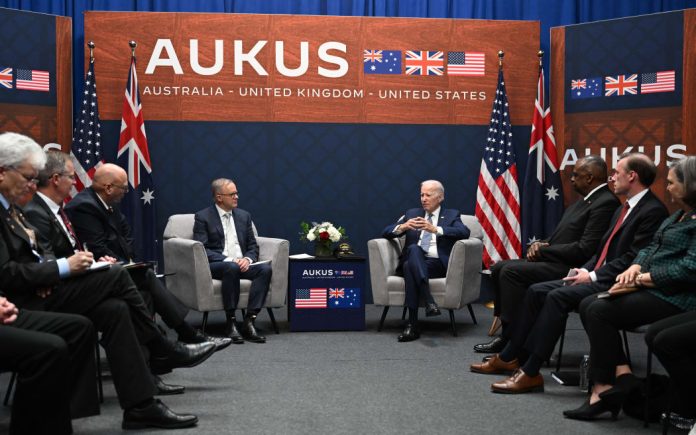The Pacific Islands Forum chairman has been assured by the United States that the AUKUS agreement will honour the Treaty of Rarotonga after initially saying he felt it would go against it.
The Treaty of Rarotonga formalises a nuclear-weapon-free-zone in the South Pacific. It was signed by several Pacific nations including Australia and New Zealand in 1985.
In a media statement, Forum chairman and Cook Islands Prime Minister Mark Brown said he was “reassured to receive from U.S counterparts last week assurances that AUKUS would uphold the Rarotonga Treaty”.
Brown initially raised concerns with the Cook Islands News about the agreement.
“The whole intention of the Treaty of Rarotonga was to try to de-escalate what were at the time Cold War tensions between the major superpowers. This AUKUS arrangement seems to be going against it,” Brown told the paper in March.
Brown told Cook Islands News at the time the situation “is what it is” but was not happy about how the arrangement had already lead to an escalation in tension within the region.
Last month, the leaders of the United States, the UK and Australia – Joe Biden, Rishi Sunak and Anthony Albanese respectively – formally announced the deal in San Diego.
It will see the Australian government spending nearly US$250 billion over the next three decades to acquire a fleet of U.S nuclear submarines with UK tech components – the majority of which will be built in Adelaide – as part of the defence and security pact.
Its implementation will make Australia one of only seven countries in the world to have nuclear-powered submarines alongside China, India, Russia, the UK, the U.S and France.
New Zealand Foreign Affairs Minister Nanaia Mahuta told RNZ Pacific she had been given “assurance” by Australia that the treaty would be upheld.
Mahuta said as members of the Pacific, there was an expectation that nations were briefed on bilateral decisions that impact the stability of the region.
“What I can say from a New Zealand perspective, is that we need to work hard together as a Pacific family to ensure greater stability and there is no militarisation of our region,” she said.
“We want to maintain a nuclear-free Pacific, we want to work with Pacific neighbours around any security related issues.”
Mahuta visited China last month and said the non-militarisation of the Pacific was discussed in her meetings along with other issues, like climate change.
Geo-political analyst Geoffrey Miller said the AUKUS deal was probably “complaint by the letter of the law” but not “by the spirit”.
“It does set a bad precedent … if you want to get hold of nuclear technology in the future just get it in a submarine because that seems to be acceptable,” Miller said.
“It has been called a submarine loophole.”
He said concerns have been expressed by outside experts, including China, but they should be taken seriously.
SOURCE: RNZ PACIFIC/PACNEWS














